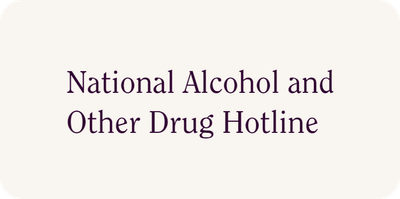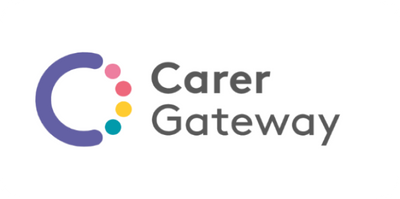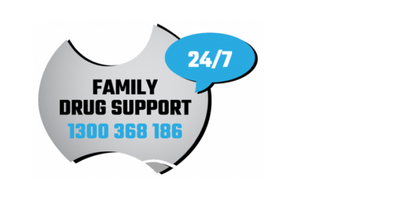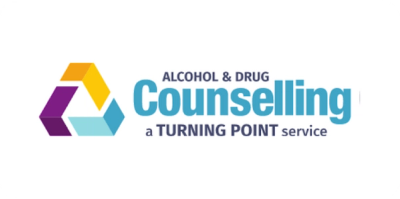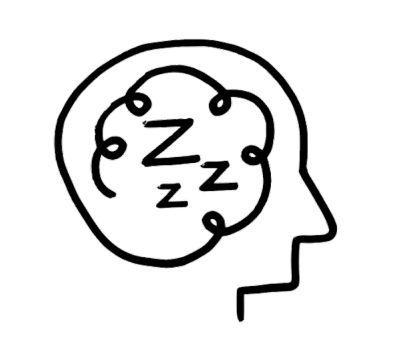Please note: This support guide is designed for family members, friends, and carers of people who may be struggling with medication addiction. For similar information related to other types of substance misuse, please head here.
Understanding medication addiction
Addiction to medicines isn't always easy to spot. That's because the line between the healthy use of medicines and when the use of those medicines becomes unhealthy is often blurred.
Addiction to medication can be dangerous and have serious impacts on our health, relationships and overall wellbeing.
The facts are worrying. Around 5% of Australians misuse medicines regularly, and more people have died from overdoses of legal drugs than illegal ones in the past decade.
Medication addiction can often develop without warning. Someone might start taking medicines for genuine reasons, only to find they become addicted to them. Because these medications are often easily accessible, it can be hard to keep a distance from them.
If you have a friend or family member who is addicted to medicine, it can be challenging. You may find that you want to help them, but you’re not sure how, or you may be struggling to understand why they’re misusing medication. But don't lose hope – with patience and understanding, you can offer support.
Types of medications that are often misused
Almost any type of medicine can be misused, but what matters more than the type of medicine is how it’s affecting the person you’re supporting. We’ve outlined a few of the most commonly misused medicines below, but keep in mind that this isn’t a complete list.
- Non-prescription medications
Non-prescription medications, also known as over-the-counter medications, can be purchased directly from pharmacies or retail stores.
Non-prescription medications that are commonly misused are:
- Pain relief medications, such as panadol and ibuprofen
- Antihistamines
- Antacids
- Cough suppressants
- Topical creams.
- Prescription medications
Prescription medications are available only with a doctor’s prescription. These medications are usually stronger or need more care in how they’re used, so they can’t be bought in retail stores.
Prescription medications that are commonly misused include:
- Opioids, usually prescribed for pain relief
- Benzodiazepines
- Stimulants
- Sedatives.
If you want to learn more about any of these medications, you can find more info here.
Remember, nearly all medications can be misused, even those that don’t produce a notable ‘high.’ Medications like steroids, antidepressants and antipsychotics are some other types of medication that are often misused.
Why do people become addicted to medications?
While many people who become addicted to medication often start using it in a responsible way, it can quickly turn into an addiction. This might make it hard for friends, family, and even the person struggling with addiction to realise there's a problem.
For example, someone might begin taking medicine as prescribed for pain after surgery or to manage anxiety during a stressful time. Then, over time, they might take more medicine than the doctor said or use it for longer than they should. They might also take it in a risky way, like mixing it with alcohol or taking a lot all at once.
Chris struggled with medication addiction after sustaining an injury and suffering from chronic pain in his back. Watch his story about his journey to recovery:
Remember, whether it's medicine, alcohol, or illegal drugs, addiction usually doesn't happen because of just one thing. There are often many reasons why someone might become addicted to something.
“The question is not why the addiction, but why the pain?”
Drivers behind medication addiction
Addiction is a repeated behaviour that we’re unable to stop, even though it’s causing us harm. To really understand addiction, it’s important to understand that the thing we’re addicted to often serves a purpose in our life. For example, we might use substances to cope with overwhelming feelings of loneliness, grief or stress, even though it also has other harmful effects on us.
We might use drugs or alcohol to deal with really strong feelings of being alone, sad, or stressed, even though drugs and alcohol can cause us other harm.
Using medicine to help with physical pain or illness symptoms is normal. But the problem comes when we rely on them for a long time.
The reasons why someone might become addicted to medications include:
- Avoiding withdrawal symptoms after using medicines for a long time (such as in the case of a long-term illness)
- Using them to hide emotional pain, like feeling alone, stressed, sad, or grieving the loss of a loved one
- Trying to feel better when dealing with a mental health problem, such as depression, anxiety, or trauma
- Struggling during big life changes, like a divorce or losing a job.
Help is available
If you are supporting someone with a medication addiction, there are specialist support services available, including support for carers.
We’ve provided a list of resources at the end of this article. But if you or someone close to you needs help right now, you can contact Lifeline or the 24/7 National Alcohol & Other Drug Hotline.
Recovery is possible
Recovery from addiction can be a long road. If you are supporting someone through the process, it’s normal to feel helpless or hopeless.
When this happens, it can be helpful to remind yourself that others have overcome medication addiction before. Check out Soula's story of recovery.
How to approach the issue
Caring for someone who is addicted to medication might feel hard at times, and you might not know the best way to approach the issue.
It’s normal to feel confused about what to do, frustrated with their behaviour, your own lack of options, and concerned for anyone else affected by the situation.
You might have already tried to have a conversation about it or not know where to start.
Unfortunately, there’s no guidebook on how to approach medication addiction with someone close to you because every situation is different. But there are a couple of things you can do that can increase the chances of a good outcome:
- Learn more about addiction
If you think someone close to you might have a problem, take the time to learn more about addiction and substance misuse. Having knowledge can help you approach the issue with empathy and understanding, reducing the risk of conflict. While medication addiction has some unique aspects, many of the general principles about drug and alcohol addiction still apply. You can read more on this topic here.
- Play a supportive role
Supporting children and family
When someone in the family is having a problem with medication, it might seem like a good idea to keep it a secret from others to ‘protect’ them. But the truth is, children can sense when something’s not right, even if they don’t understand exactly what’s going on.
People sometimes wait to get help for the kids because they feel embarrassed or scared, and they don’t know what to do. But it’s important to know that the sooner you ask for help, the better it usually is for the kids. It’s okay to reach out for support when things like this happen.
How to approach the conversation with children
Children may have already sensed there is a problem, so you may not have to explain as much to them as you think. When you talk to them, make sure they feel safe and that you’re there to support them.
Here are some tips for how to approach a conversation with a child:
- Keep it age-appropriate
Above all else, talk to them in a way that matches their age. Addiction and how medicines work can be too hard to understand for younger kids (under 10). So, you might need to explain it as “a health problem dad needs some help with ” or something similar. Don't worry too much about explaining all the details of why it's happening. Just let them know there's a problem that's being taken care of.
- Tell them the plan
- Explain that it’s not their fault
- Reassure children that they are still loved
The power of routine and stability
When someone in the family is dealing with addiction, it can take a lot of emotional and practical energy. This might cause disruptions in your daily routines and stability at home. If this has happened in your home, don't blame yourself. What's important is making a plan to get your child back into a regular routine instead of focusing on recent challenges.
A consistent routine for a child will:
- Show them that life is continuing as normal and everything will be okay, even if it’s tough right now
- Keep them connected to other supportive people, like teachers, friends, or coaches
- Give them time to enjoy the things they like in a positive and stress-free environment.
Taking care of yourself
Supporting someone with a medication addiction can be tough. If you’re feeling tired, frustrated, or confused about the whole situation, don’t worry, that’s perfectly normal. It’s hard dealing with something so challenging.
Keep in mind that recovery from addiction takes time. Even though it’s tough, try not to push too hard or rush things. The best way to help is by providing steady support.
Realistically, your loved one might need your help for a while. Prioritising your own self-care is an important way you can be there for them without sacrificing your mental health and wellbeing.
The importance of boundaries
You might hear talk of “boundaries” when talking about supporting someone with addiction. Boundaries are important for taking care of yourself. They can help keep you healthy and well so you can continue supporting your loved one.
Boundaries are like personal rules that show what you are okay with or not. They help you decide what you will or won't do, what behaviours you won't accept, and what topics you won’t discuss.
Your boundaries might include:
- Setting limits on refilling prescriptions or buying medications
- Not having anything to do with medication management (if it hasn’t worked well before)
- Limiting the practical things you have time and energy to help with
- Prioritising your needs or the needs of other people you support
- Not covering up for your loved one or influencing what they tell their doctor
- Seeking professional guidance for medication-related decisions instead of managing these decisions all by yourself.
If you are currently caring for someone with an addiction, remember to celebrate the small victories and prioritise your own mental health. Also, don’t forget to reach out for support. There are many available support services available to carers, which we’ve detailed below.
Where to go next
Supporting someone who is struggling with medication addiction can be overwhelming. As hard as it may be, approaching the situation with patience and understanding is the best way to connect with your loved one.
If you are still finding it challenging to support them or difficult to find relevant information, there are available support services that can lend a helping hand.
You can also learn more about addiction in our support guide.
- 1300 MEDICINE - free Australian Government-funded service staffed by registered pharmacists. If you have any questions about medicines, you can call them on 1300 633 424.
- Alcohol and Drug Foundation - their Drug Info and Advice Line is available Monday to Friday 9am-5pm. They can provide advice on how to support a loved one and connect you with relevant services in your state and territory. You can contact them on 1300 858 584 or druginfo@adf.org.au.


